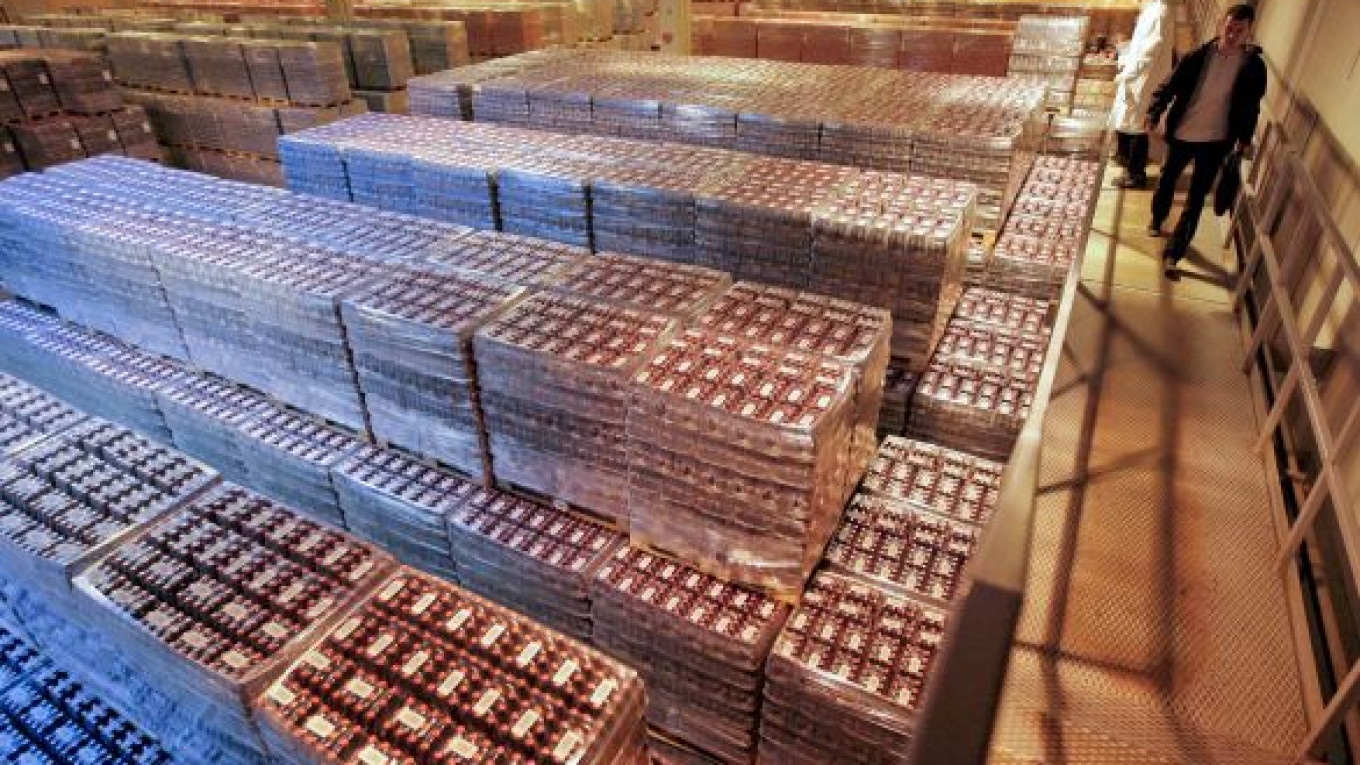They've been transformed into fitness centers and dance clubs, but Moscow warehouses are smarting up these days with a different type of investment as data center developers convert the sites into high-tech facilities to satisfy Russia's demand for data storage space.
Warehouses are the ideal sites for data centers because they have a good electricity supply and space to put in air conditioners and generators, said Guy Willner, former chief executive of IXEurope, which operated 14 data centers across Europe.
"You are master of everything that is above and below you," he said. "It's like having a blank canvas for an artist."
Willner is co-founder of IXcellerate, which plans to open a data center in a Moscow warehouse by the end of this year.
There are now 50,000 square meters of warehouse space in the Moscow area, according to Penny Lane Realty's Igor Kazimov. But finding the perfect one for a data center is still a challenge.
It took Thomas Hodgkinson, property adviser at CB Richard Ellis, almost a year to find the right building for Willner's project. He began by looking for Class A warehouses, which would have 12-meter ceilings and power, but soon realized that this ideal does not exist.
Like him, developers usually start out by looking for Class A warehouses with power, but they either find a suitable warehouse without power or a greenfield with power. A greenfield would be an ideal location if it didn't take two years to build a new facility in Russia, Hodgkinson said.
"The data center industry is so time-sensitive. Three months in the data center industry is like a year in any other industry," Hodgkinson said. "Those people don't have time to go for build-to-suit."
Hodgkinson settled on a warehouse and negotiated to get additional power from nearby factories, which had seen a drop in their production since the Soviet period and now have some electricity to spare.
But not all data center companies are convinced that they should build in warehouses. Marat Pulatov, hosting solutions director at e-Style Telecom, said there is not enough demand in Russia to fill an entire warehouse at once.
"It will be hard to get profits," Pulatov said. "You need to invest and develop the space right now, but will not get the return until much later on."
Some customers will also not want to have their data stored in former warehouses, said Alexei Pilipchuk, technical director of systems integrator Technoserv. State agencies and large organizations will try to use their existing facilities, including former factories and warehouses, as their data centers, but financial organizations will prefer to open data centers closer to their offices, he said.
A warehouse owner might be easier to convince. The owner gets double the rental price for a warehouse that is used as a data center instead of for storage. Though some owners still balk at the idea of converting their warehouses into data centers, they could soon realize how profitable the venture is, Hodgkinson said.
A Message from The Moscow Times:
Dear readers,
We are facing unprecedented challenges. Russia's Prosecutor General's Office has designated The Moscow Times as an "undesirable" organization, criminalizing our work and putting our staff at risk of prosecution. This follows our earlier unjust labeling as a "foreign agent."
These actions are direct attempts to silence independent journalism in Russia. The authorities claim our work "discredits the decisions of the Russian leadership." We see things differently: we strive to provide accurate, unbiased reporting on Russia.
We, the journalists of The Moscow Times, refuse to be silenced. But to continue our work, we need your help.
Your support, no matter how small, makes a world of difference. If you can, please support us monthly starting from just $2. It's quick to set up, and every contribution makes a significant impact.
By supporting The Moscow Times, you're defending open, independent journalism in the face of repression. Thank you for standing with us.
Remind me later.






